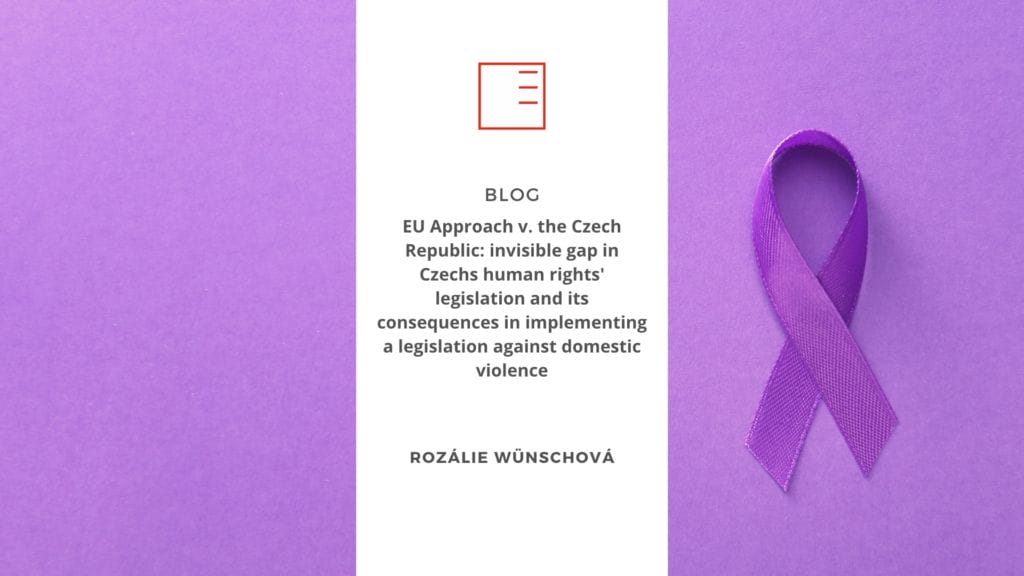
BLOG: EU Approach v. the Czech Republic: invisible gap in Czechs human rights' legislation
More info 10. 2. 2023
10. 2. 2023
Rozálie Wünschová writes in her blog that the Czech Republic is one of only two EU countries where corporal punishment of children is still legally permitted. Together with Slovakia, this puts the Czech Republic behind not only the Nordic countries, where corporal punishment was banned in the last century but also countries such as Turkmenistan, which adopted protective legislation in 2007.
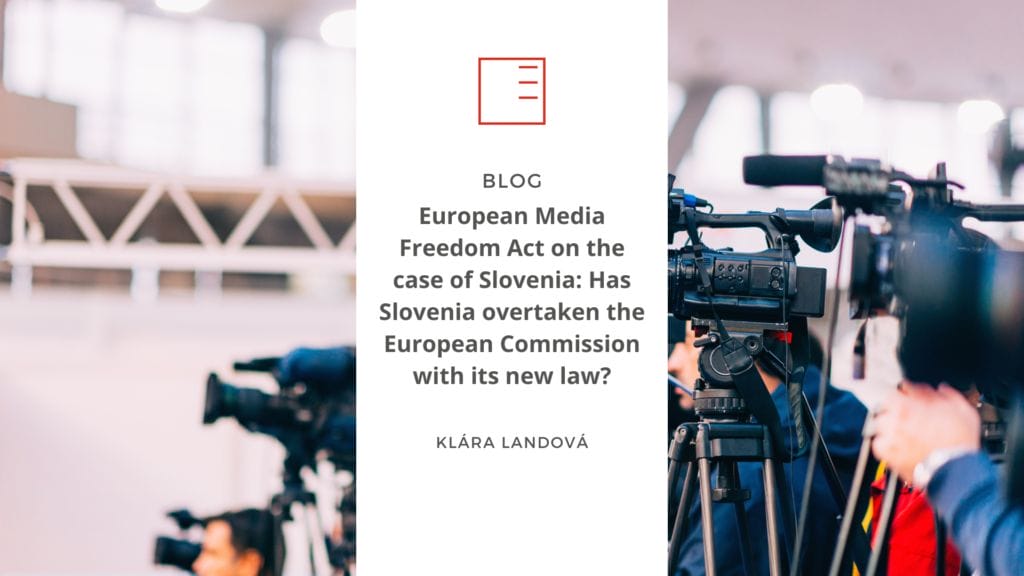
BLOG | European Media Freedom Act on the case of Slovenia: Has Slovenia overtaken the European Commission with its new law?
More info 8. 2. 2023
8. 2. 2023
In September 2022, the European Commission put forward a proposal for a new media regulator - the European Media Freedom Act. Slovenia is one of the most struggling EU countries in terms of media freedom and independence. In the summer of 2020, the Janša government proposed a media-focused law that would increase the state's influence over Slovenia's national press agency and limit its funding of the public broadcaster RTV. Has Slovenia's new law put the European Commission ahead of the game? That is what our intern Klára Landová discusses in her blog.

POLICY PAPER | EU Platform workers‘ directive: A test for regulating the future of work
More info 1. 2. 2023
1. 2. 2023
A policy paper by our research intern Silke Maes entitled "EU Platform workers' directive: A test for regulating the future of work" takes a closer look at the aforementioned Directive on improving working conditions at work through platforms. The paper details the impact of the development of platforms on working conditions and then argues that the Directive is the first EU attempt to respond to this development.
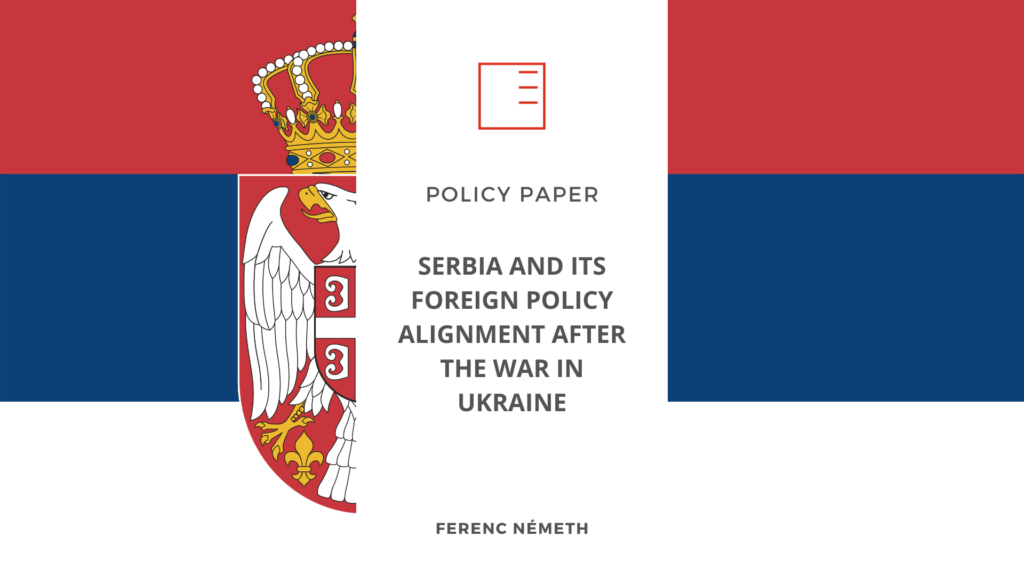
Policy Paper | Serbia and Its Foreign Policy Alignment after the War in Ukraine
More info 25. 1. 2023
25. 1. 2023
Ferenc Németh, a researcher on the politics, security and integration of the Western Balkans, has written a policy paper under the project Think Visegrad in Brussels. In it he examines Serbia's foreign policy towards the European Union after the Russian invasion of Ukraine.
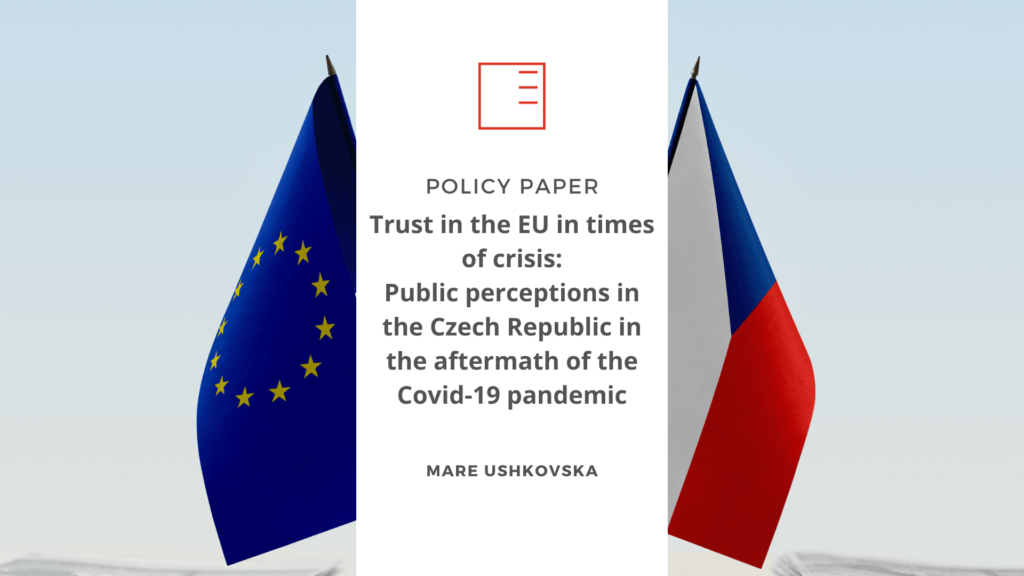
Policy Paper | Trust in the EU in times of crisis: Public perceptions in the Czech Republic in the aftermath of the Covid-19 pandemic
More info 25. 1. 2023
25. 1. 2023
How has the Covid-19 pandemic affected the Czechs' relationship with the European Union? This topic is addressed in a policy paper by visiting fellow Mare Ushkovska.
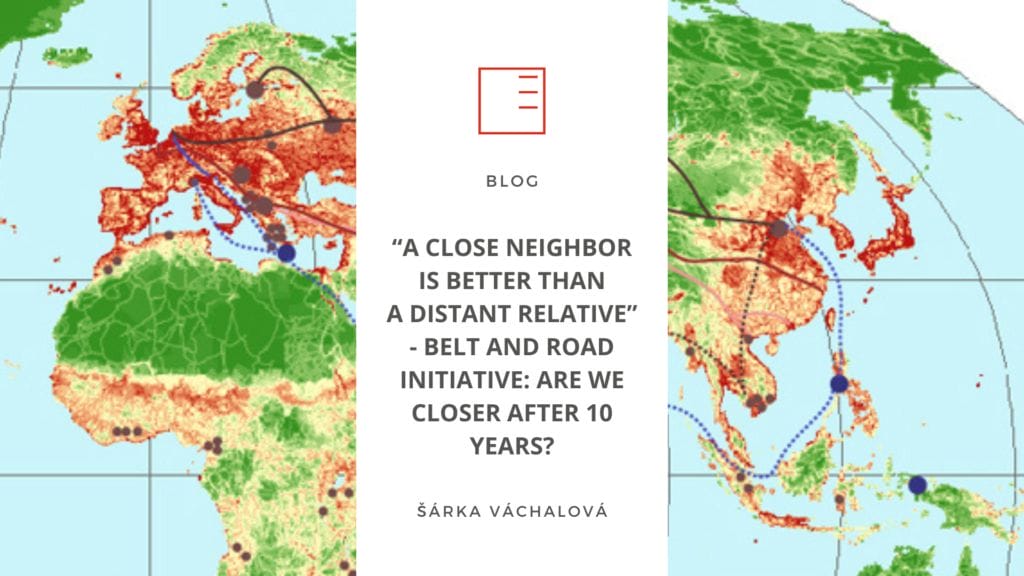
BLOG | “A Close Neighbor Is Better Than a Distant Relative” - Belt and Road Initiative: Are We Closer After 10 Years?
More info 25. 1. 2023
25. 1. 2023
In 2013, the Chinese president introduced the New Silk Road project, also known as the Belt and Road Initiative. It was to connect China with countries in Central Asia, the Middle East, Europe and maritime regions with the purpose to coordinate policies and link infrastructure. However, the initiative, and especially China's role in it, raises many questions and doubts. What is its future? This is what our intern Šárka Váchalová discusses in her blog.
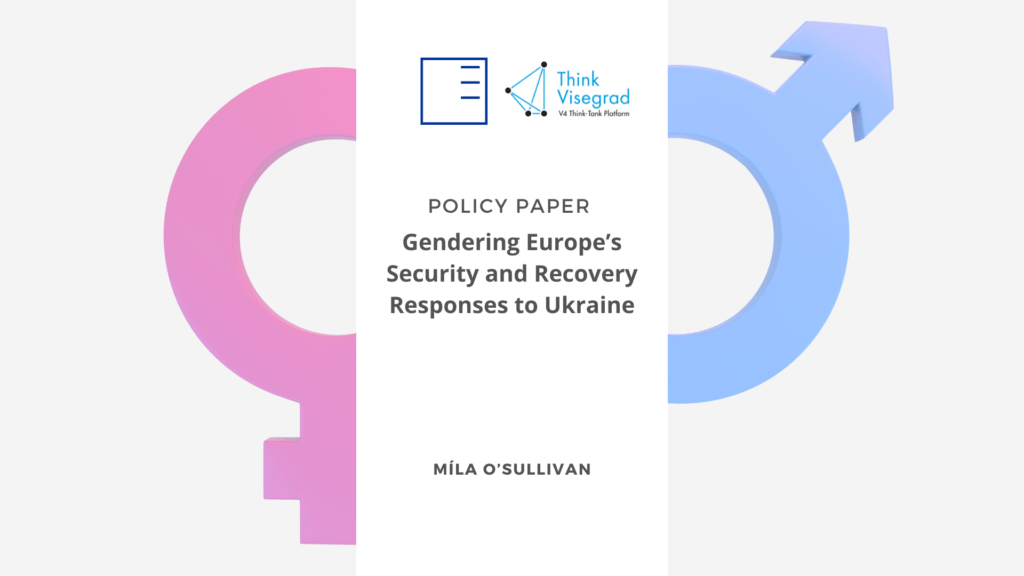
POLICY PAPER | Gendering Europe’s Security and Recovery Responses to Ukraine
More info 12. 1. 2023
12. 1. 2023
The policy paper, written by Míla O’Sullivan, illustrates that to centre the gender dimension and women’s voices in all aspects of Europe’s security and recovery responses to Ukraine are areas with the most serious gendered impacts and identifies the risks of gender-oblivious responses to Ukraine’s peaceful and sustainable future as well as to its European integration.
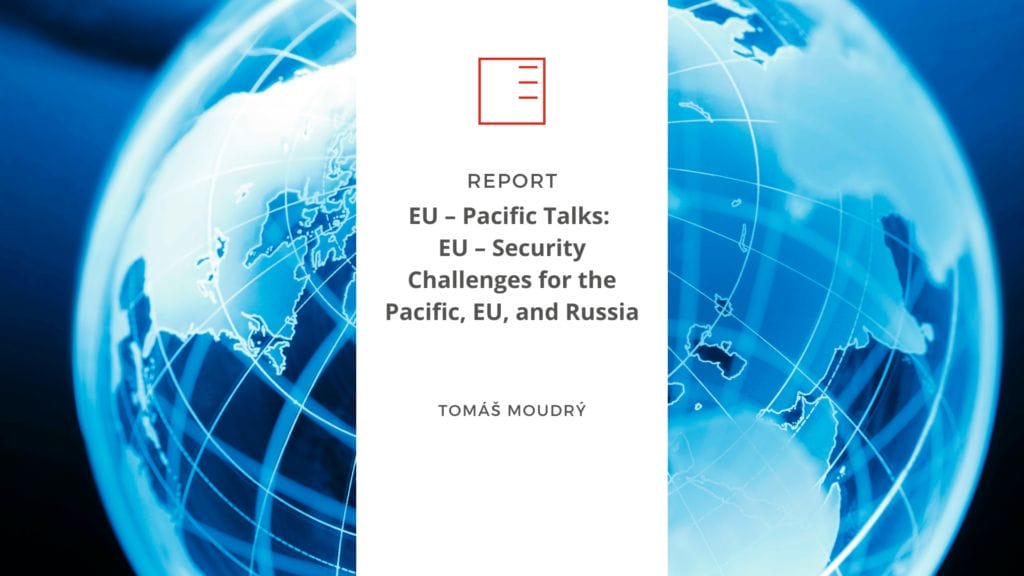
REPORT | EU – Pacific Talks: EU – Security Challenges for the Pacific, EU, and Russia
More info 10. 1. 2023
10. 1. 2023
If you missed the debate EU - Pacific talks: EU - Security Challenges for the Pacific, EU, and Russia, here you can read the report from the debate written by Tomáš Moudrý. During the debate, it was discussed, for example, that despite the considerable geographical distance, the EU and the Indo-Pacific region are now more interconnected than ever before and both sides are seeking to strengthen their partnership in many areas, with security policy now one of the most important due to many factors.
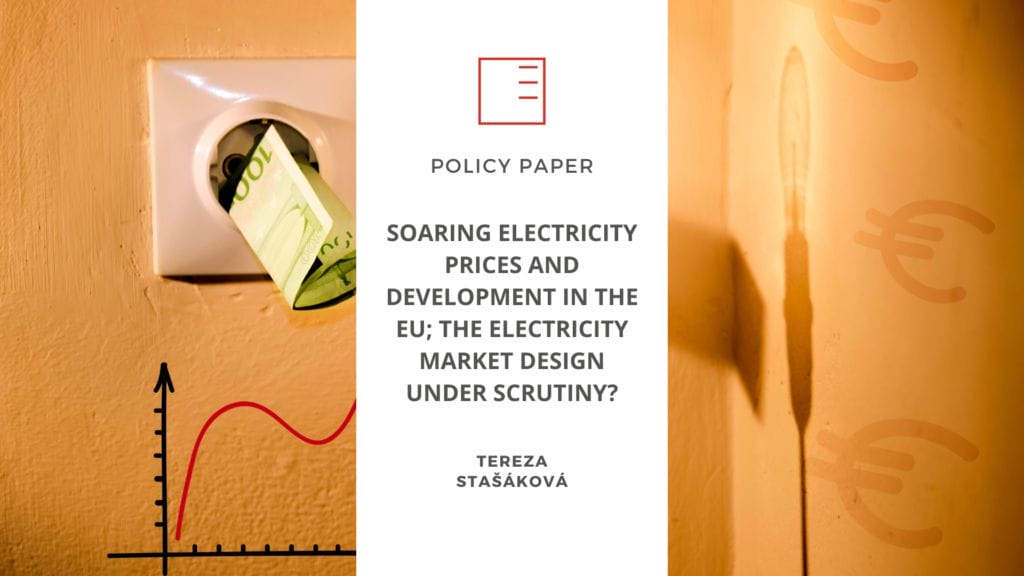
POLICY PAPER | Soaring electricity prices and development in the EU; the electricity market design under scrutiny?
More info 19. 12. 2022
19. 12. 2022
As part of the internships provided by our Brussels office to Czech researchers, Tereza Stašáková wrote a policy paper on rising electricity prices and developments in the EU. It analyses the reasons for rising prices and how EU Member States have reacted to the situation. And whether the solution is to restructure the electricity market.

Blog | Business-as-usual between Germany and China as a disruptive element for the European Union
More info 15. 12. 2022
15. 12. 2022
The war in Ukraine and the subsequent economic crisis caused by Europe's dependence on Russian fossil fuels showed Europeans the danger of keeping too tight economic ties to autocratic regimes. However, while Europe is shedding its dependence on Russia, another economic reliance is gaining strenght, namely that of Germany on China. In her blog, our intern Kristina Kropáčková explores the broader context of this phenomenon and its implications for EU cohesion.
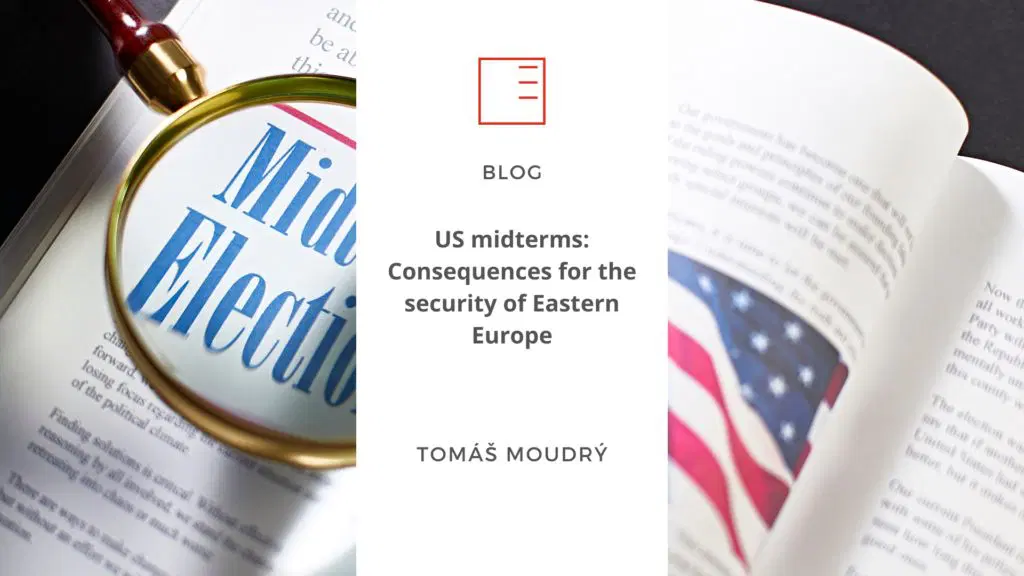
Blog | US Midterms: Consequences for the security of Eastern Europe
More info 13. 12. 2022
13. 12. 2022
The recent US midterm elections made headlines around the world. The main issues that voters were interested in
were the state of democracy and the rule of law, abortion, the economy and education. Our intern Tomáš Moudrý addressed these topics in his blog.
"The most expensive midterms in the US history are over. Republicans gained the House majority with 221 seats and the Democrats retained the Senate with 51 seats. Is this a surprising result? Partly yes, partly no. Firstly, polls and even Republicans were sure about a “Red wave“ that would sweep across the US. Instead, there was a tossup in both Chambers of the Congress. Secondly, the President’s party usually lose the midterms. One can argue that midterms from the incumbent President’s party perspective traditionally have just one major goal – to mitigate losses by the closest possible margin. The Democrats seem to have found a way to deal with this fate, despite Biden's low approval rating."
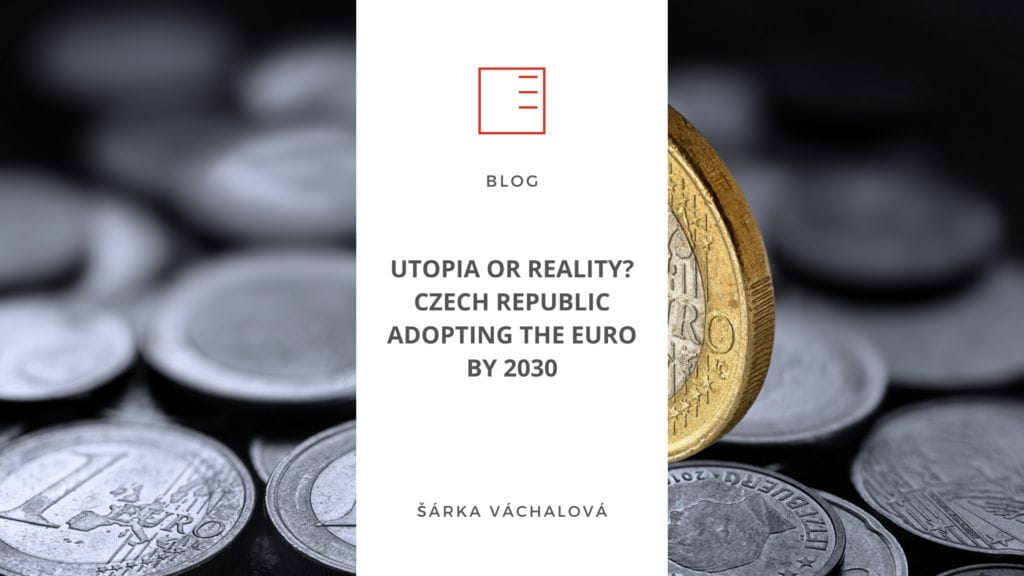
Blog | Utopia or reality? Czech Republic adopting the Euro by 2030
More info 12. 12. 2022
12. 12. 2022
When will the Czech Republic be ready to adopt the euro, as it committed to when it joined the EU. Why do we not have the euro yet and what will be the impact of its adoption? Our intern Šárka Váchalová covered this topic in her blog.